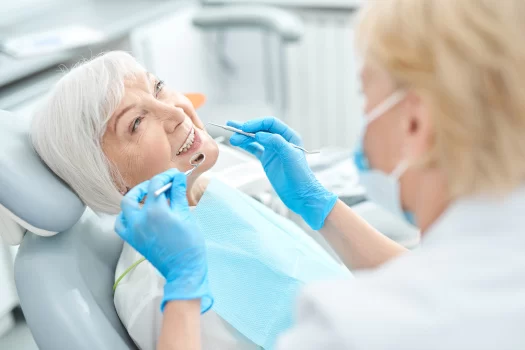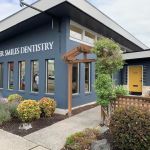
Why Seniors Need Special Dental Care: Understanding the Importance of Oral Health for Older Adults
As we age, our bodies go through various changes, and our oral health is no exception. When I first started noticing the changes in my own mouth, I didn’t realize how crucial it was to give extra attention to my dental care. It wasn’t until I went for a routine checkup with my dentist that I truly understood why seniors need special dental care. Aging brings about unique challenges to our teeth and gums that we may not always anticipate. From dry mouth to gum disease, the importance of proper dental hygiene for older adults can’t be overstated.
1. The Challenges of Aging Teeth
As we get older, our teeth are more likely to experience wear and tear. The enamel, which protects our teeth from decay, naturally begins to thin. For some, this results in increased sensitivity or even cavities. I noticed this firsthand when drinking cold beverages started to become uncomfortable. A dentist explained to me that as enamel thins, the nerves in our teeth become more exposed, which can lead to sensitivity.
Additionally, the likelihood of gum disease increases with age. According to the American Dental Association (ADA), nearly 70% of adults aged 65 or older have gum disease to some degree. This condition can lead to tooth loss if not properly managed. Gum recession is also common among older adults, making the gums more vulnerable to infection. For seniors, preventive care becomes even more essential to protect their oral health.
2. Dry Mouth: A Common Concern for Seniors
One of the most common issues I’ve faced as I’ve gotten older is dry mouth, also known as xerostomia. Dry mouth occurs when there’s a lack of saliva, which is crucial for washing away food particles and neutralizing acids that cause tooth decay. Many medications that seniors take, such as those for high blood pressure or depression, can contribute to dry mouth. This can make it difficult to chew, swallow, and even speak.
What I’ve learned is that dry mouth significantly increases the risk of tooth decay, as the mouth’s natural defense mechanism is compromised. To combat this, I’ve been using saliva substitutes and drinking plenty of water throughout the day. Regular dental checkups are essential for identifying and addressing dry mouth before it leads to more serious problems.
3. The Link Between Oral Health and Overall Health
You may be surprised to learn that oral health doesn’t just affect your teeth and gums; it can also impact your overall health. Research has shown that poor oral hygiene can increase the risk of conditions such as heart disease, diabetes, and respiratory problems. This was something I didn’t fully grasp until a conversation with my dentist opened my eyes to the connection between the mouth and the rest of the body.
Gum disease, for example, has been linked to an increased risk of heart disease due to the inflammation it causes in the body. Seniors with diabetes are also at higher risk for gum infections, as high blood sugar can reduce the body’s ability to fight infection. Understanding this connection has made me more proactive about maintaining good oral hygiene and seeking regular dental care.
4. Importance of Regular Dental Checkups for Seniors
Regular dental visits are crucial for seniors, not just for routine cleanings but also for early detection of issues that may not be immediately obvious. I’ve found that my dentist takes extra care to monitor the health of my gums, check for oral cancers, and ensure that my fillings or crowns are in good condition. Preventive care is the key to avoiding costly and complicated procedures down the road.
During my visits, my dentist also educates me on how to properly care for my teeth as I age. Using a soft-bristled toothbrush, flossing carefully, and using fluoride toothpaste have become important habits in my daily routine. Seniors may also benefit from dental treatments like fluoride varnishes or sealants to protect against decay, especially for those with weakened enamel.
5. Dentures and Implants: Maintaining a Confident Smile
As someone who has seen many seniors struggle with missing teeth, I know how important it is to have solutions that restore confidence. Dentures have long been a popular option for replacing lost teeth, but implants are becoming increasingly common as well. I’ve spoken with several friends who have received dental implants, and many of them say it’s the closest thing to having natural teeth again. While implants can be expensive, they can be an excellent long-term investment for seniors who want to maintain their ability to chew, speak, and smile comfortably.
For those who opt for dentures, proper care is essential to ensure they fit well and function properly. Regular visits to the dentist for adjustments and professional cleaning can help prevent discomfort and maintain the longevity of dentures. It’s crucial to treat dentures with the same care as natural teeth to avoid infection or other complications.
6. Nutrition and Oral Health in Older Adults
Something I’ve learned is that what we eat plays a huge role in the health of our teeth and gums. As we age, our dietary habits may change, and it can become harder to chew certain foods. This can lead to a diet that’s lower in essential nutrients, which can negatively impact oral health. I’ve made an effort to eat more foods rich in calcium, vitamin D, and other nutrients that promote healthy teeth and bones.
Chewing fibrous fruits and vegetables also helps stimulate saliva production and clean the teeth naturally. Seniors should avoid sugary snacks and drinks, as they can contribute to tooth decay and gum disease. It’s important to maintain a balanced diet and stay hydrated to support both overall health and oral health.
7. Finding the Right Dental Care Providers for Seniors
Finding a dentist who understands the unique needs of seniors can make a significant difference in maintaining good oral health. It’s important to seek a provider who is experienced in treating older adults and who can offer tailored advice based on your specific needs. Whether it’s managing dry mouth, recommending implants, or addressing gum disease, the right dental care provider can help seniors navigate the challenges of aging teeth.
At Dentistry Toothtruth, we specialize in providing the best dental care for seniors. Our team is committed to helping older adults maintain their oral health through personalized care and expert guidance. If you’re looking for trusted dental services, visit our website for more information and recommendations on the best care for your needs.







 Dr. Christian E. Miller, DDS5.0 (5 review)
Dr. Christian E. Miller, DDS5.0 (5 review) NorthShore Health Centers4.0 (153 review)
NorthShore Health Centers4.0 (153 review) Sumner Smiles Dentistry4.0 (79 review)
Sumner Smiles Dentistry4.0 (79 review) Johnson Ebenezer DDS4.0 (12 review)
Johnson Ebenezer DDS4.0 (12 review) Daniel Jeffrey Cohen, DDS5.0 (117 review)
Daniel Jeffrey Cohen, DDS5.0 (117 review) Brace Busters3.0 (2 review)
Brace Busters3.0 (2 review) The Importance of Oral Health Education During Pregnancy for a Healthy Pregnancy
The Importance of Oral Health Education During Pregnancy for a Healthy Pregnancy Best Tips for Brushing Your Teeth Properly for Healthy Gums: Essential Techniques for Oral Health
Best Tips for Brushing Your Teeth Properly for Healthy Gums: Essential Techniques for Oral Health Why Skipping Dental Checkups Can Lead to Bigger Oral Health Problems
Why Skipping Dental Checkups Can Lead to Bigger Oral Health Problems Advantages of Porcelain Dental Restorations
Advantages of Porcelain Dental Restorations How Can Diabetes Cause Tooth and Gum Problems? Preventing and Managing Oral Health Issues
How Can Diabetes Cause Tooth and Gum Problems? Preventing and Managing Oral Health Issues Healthy Habits for Promoting Good Oral Health and Hygiene: Tips for a Healthy Smile
Healthy Habits for Promoting Good Oral Health and Hygiene: Tips for a Healthy Smile